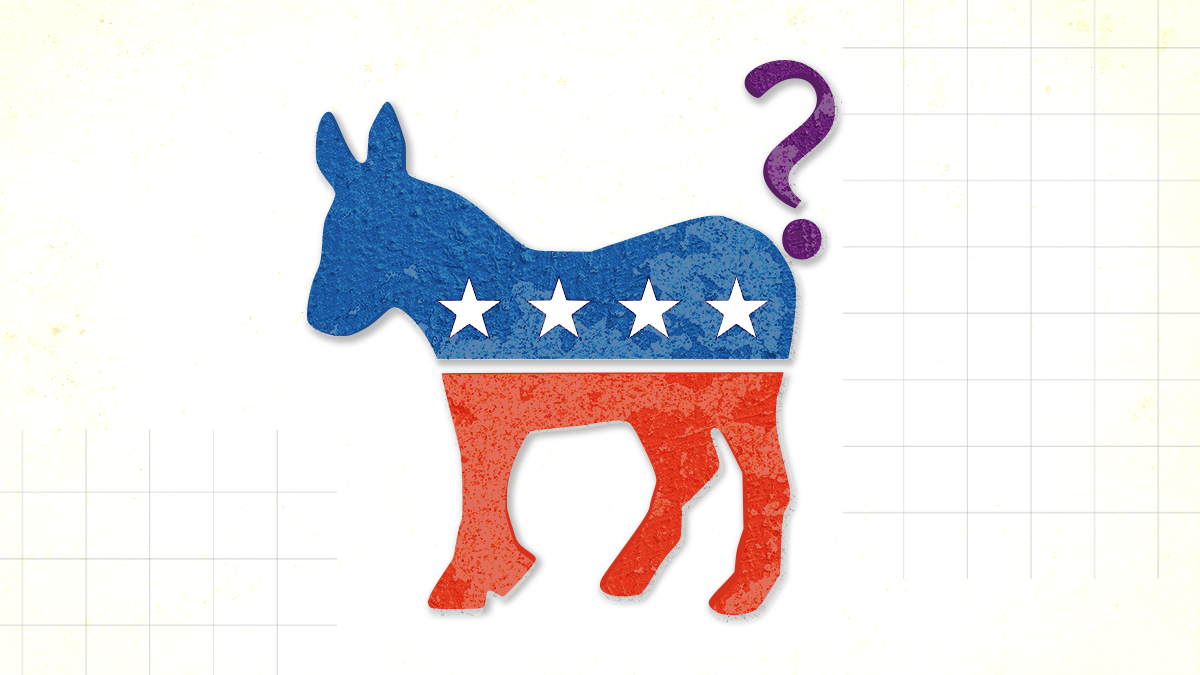December 02, 2022
President Joe Biden has given every indication, short of a formal announcement, that he will run for reelection in 2024. But public focus on his age – he’ll be 82 on Election Day – and his higher-but-still-sagging approval ratings continue to feed media speculation, and the hopes of some Democrats, that he’ll follow the lead of outgoing House Speaker Nancy Pelosi and make room for a younger generation of leaders within his party.
Biden knows that past presidents eligible for reelection who decided not to run have seen their party lose the White House. (See Harry Truman in 1952 and Lyndon Johnson in 1968.) No one within the party wants to publicly push him off stage. As both parties have learned the hard way, a primary challenge for a sitting president can doom the incumbent’s party to defeat. (See Jimmy Carter in 1980 and George HW Bush in 1992.)
But a poll taken in September found that just 35% of Democrats and Dem-leaning independents want Biden to seek reelection, and it’s hard to see why voters would change their minds on such a well-known politician.
So … if not Joe Biden, who might carry the Democratic Party standard into the 2024 presidential election?
Vice President Kamala Harris is even less popular than Biden, and her 2020 campaign fizzled even before the first primary votes were cast. Most other recent Democratic presidential candidates – Pete Buttigieg, Sen. Elizabeth Warren, Sen. Cory Booker and others – appear more comfortable in the faculty lounge than on the factory floor, to paraphrase Dem activist Paul Begala, who argues that his party must have a leader with a common touch.
Gov. Gavin Newsom is an oft-mentioned potential candidate, but his image as a polished politician who leads deep-blue California may bother both pragmatic voters of the center-left and conservative independents on the right.
Who can rise above the Bolshevik vs. Menshevik internal Democratic Party debates over political correctness and identity politics to capture enough moderates and independents to beat a formidable Republican rival? Is there a candidate who can satisfy nearly the full spectrum of Democratic voters, as Biden did in 2020?
If Biden opts out, here are four potential candidates to watch.
Minnesota Sen. Amy Klobuchar – Representing the battleground state of Minnesota, Klobuchar remained a viable choice during the 2020 Democratic primaries for longer than most anticipated. Don’t expect soaring speeches, but she has solid debate skills, and she’s won votes from both progressives and moderates in her state.
Michigan Gov. Gretchen Whitmer – A potential emerging star who won reelection in purple Michigan by a comfortable margin. Like Klobuchar, she’s plainspoken and comes from a Midwest swing state. But she’s more charismatic than Klobuchar and has the governor’s advantage of remaining untainted by Beltway Washington politics.
North Carolina Gov. Roy Cooper – Another purple state governor with a track record of winning tough elections. In North Carolina, his friendly image and moderate politics helped him win election (2016) and then reelection (2020) in years when presidential candidate Donald Trump won his state.
Arizona Sen. Mark Kelly – A former astronaut and navy pilot, Kelly is another purple state star with an affable image, sharp political instincts, and a willingness to challenge the orthodoxies of his party on tough issues like immigration. As the husband of former Congresswoman Gabby Giffords, who survived a bullet to the head during an assassination attempt, he can speak on gun control, one of America’s most emotive political issues, from personal experience.
There are other Democrats who could win centrist and independent votes, depending on the Republican Party’s nominee. See Colorado Gov. Jared Polis, Montana Sen. Jon Tester, Illinois Gov. J.B. Pritzker, and others.
Until President Biden formally announces that he will or will not seek reelection, none of these potential candidates is likely to make a move. If Biden bows out, and any or all of these would-be successors jump in, it won’t take long to discover their flaws and vulnerabilities.
In the meantime, pressure will grow on Biden to make his intentions clear.
From Your Site Articles
More For You
Ian Bremmer sits down with former US Ambassador to NATO Ivo Daalder to unpack a historic shift in the transatlantic alliance: Europe is preparing to defend itself without its American safety net.
Most Popular
Think you know what's going on around the world? Here's your chance to prove it.
U.S President Donald Trump, U.S. Vice President JD Vance, and U.S. Secretary of State Marco Rubio pose for a family photo with other representatives participating in the inaugural Board of Peace meeting, at the U.S. Institute of Peace in Washington, D.C., U.S., February 19, 2026.
REUTERS/Kevin Lamarque
Argentina, Armenia, Belarus, Egypt, Indonesia, Jordan, Pakistan, Paraguay, Vietnam – to name only a few.
A poster featuring Andrew Mountbatten-Windsor, formerly known as Prince Andrew, is installed on a sign leading to the parking area of the Sandringham Estate in Wolferton, as pressure builds on him to give evidence after the U.S. Justice Department released more records tied to the late financier and convicted sex offender Jeffrey Epstein, in Norfolk, Britain, February 5, 2026.
REUTERS/Isabel Infantes
British police arrested former Prince Andrew Mountbatten-Windsor today over allegations that in 2010, when he was a UK trade envoy, he shared confidential government documents with convicted sex offender Jeffrey Epstein.
© 2025 GZERO Media. All Rights Reserved | A Eurasia Group media company.
